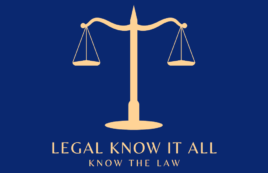A class-action lawsuit is a type of legal action that provides a way for a large group of people with a common interest in a matter to sue or be sued as a collective group. This kind of lawsuit is particularly useful in situations where there are too many individuals for each to file a separate lawsuit. Let’s break down this concept for a clearer understanding:
The Basics of a Class-Action Lawsuit
- Group of Plaintiffs: In a class-action lawsuit, a group of people collectively bring a claim to court. These individuals are known as the “class.”
- Common Issue: The key characteristic of a class-action lawsuit is that the plaintiffs have all been affected in a similar way. This could be due to a defective product, a corporate wrongdoing, environmental disasters, or other issues that impact a large group of people.
- Lead Plaintiffs: Within the class, there are usually one or several individuals known as “lead plaintiffs” or “class representatives.” These people actively represent the interests of the entire class in court.
- Legal Efficiency: Class-action lawsuits are efficient because they consolidate many similar individual claims into one lawsuit. This approach is more practical than having thousands of individual lawsuits, which could overwhelm the court system and incur significant legal costs for individuals.

How Does a Class-Action Lawsuit Work?
- Filing the Lawsuit: A class-action lawsuit begins when a lead plaintiff files a claim on behalf of the entire class. This claim outlines the common issue affecting the group.
- Certifying the Class: The court must then certify the class. This means the court decides whether the group of individuals is sufficiently large and whether their issues are common enough to warrant a class-action approach.
- Notification: Once the class is certified, potential class members are notified and given an opportunity to join the lawsuit. They can choose to opt out if they wish to pursue individual claims.
- Resolution: The lawsuit proceeds like any other, with the possibility of a trial or settlement. If successful, any compensation or remedy is divided among the class members according to agreed-upon terms.
- Binding Decision: The outcome of a class-action lawsuit is binding on all class members, except for those who have opted out of the class.
Examples of Class-Action Lawsuits
Class-action lawsuits can arise in various scenarios, such as:
- Consumers suing a company for a defective product that caused harm.
- Employees taking action against an employer for discriminatory practices.
- Residents affected by environmental pollution from a nearby factory.
The Importance of Understanding Class-Action Lawsuits and Their Impact on You
Knowing about class-action lawsuits is crucial because they can significantly impact your legal rights and options in situations where you’re part of a larger group affected by the same issue. Understanding how these lawsuits work can help you make informed decisions about your involvement and potential benefits. Here’s why it’s important and how it can affect you:
Potential for Compensation
If you’re part of a class that has been wronged, a class-action lawsuit can be a viable way to seek compensation. For instance, if you’ve purchased a product that turned out to be harmful or defective, being part of a class-action lawsuit might be your best chance to receive reimbursement or damages.
Access to Justice
Class-action lawsuits can level the playing field against large corporations or entities. They allow individuals, who might not have the resources to take on a big company alone, to seek justice collectively. This collective power can lead to more fair outcomes for individuals who might otherwise be ignored.
Efficiency and Convenience
Joining a class-action lawsuit can be more efficient and less burdensome than pursuing an individual lawsuit. It saves time and resources since the legal process is shared among all class members. You benefit from the legal representation and the collective strength of the group without the need to personally handle every aspect of the lawsuit.
Awareness of Rights
Being aware of class-action lawsuits can help you recognize when your rights have been violated along with others. This awareness can prompt you to take action, join an existing lawsuit, or even initiate one if you find others in a similar situation.
Impact on Future Conduct
Class-action lawsuits can compel companies and organizations to change their practices. By holding them accountable for wrongdoing, these lawsuits can lead to improved policies, increased safety standards, and better corporate behavior, which benefits society as a whole.
How It Affects You
- As a Consumer: You might be eligible to join a class-action lawsuit if a product or service you used caused harm or didn’t deliver as promised.
- As an Employee: If your employer engages in unlawful practices like discrimination or wage theft affecting multiple employees, a class-action lawsuit might be an option.
- As a Citizen: In cases of environmental harm or public health issues, being part of a class-action lawsuit can be a way to seek remediation and hold responsible parties accountable.
Exploring Common Questions About Class-Action Lawsuits
How do I know if I’m eligible to be part of a class-action lawsuit? You’re typically eligible if you meet the criteria defined in the lawsuit, such as purchasing a specific product, being employed by a certain company during a particular time, or living in a specific area affected by an environmental issue. Notification of a class-action lawsuit is usually sent out to potential class members, or you can find information through public records and news sources.
Do I need to hire my own lawyer if I’m part of a class-action lawsuit? In most cases, you do not need to hire your own lawyer. The class-action lawsuit will have appointed lead plaintiffs who represent the interests of the entire class, and they will have legal representation. As a class member, you are represented by these attorneys.
What happens if I opt out of a class-action lawsuit? If you opt out of a class-action lawsuit, you retain the right to pursue your own individual lawsuit against the defendant. However, you will no longer be part of the class-action claim and will not receive any benefit from it, such as a settlement or verdict award.
Is there any cost to me for joining a class-action lawsuit? Typically, there are no upfront costs for joining a class-action lawsuit. The attorneys representing the class usually work on a contingency fee basis, meaning they only get paid if the lawsuit is successful, and their fees are a portion of the settlement or award.
How long do class-action lawsuits usually take? The duration of a class-action lawsuit can vary greatly depending on the complexity of the case, the number of plaintiffs, and the legal processes involved. Some lawsuits may be settled in a few months, while others can take several years.
What kind of compensation can I expect from a class-action lawsuit? Compensation in a class-action lawsuit can vary widely. It may include monetary awards, which are divided among the class members, or other forms of relief, such as product replacements, repairs, or changes in a defendant’s business practices.
Can I participate in a class-action lawsuit if I live in a different state than where it was filed? Yes, you can often participate in a class-action lawsuit even if you live in a different state. Many class-action lawsuits are filed in federal court and can include plaintiffs from across the country if the issue affected people nationwide.
The Evolution of the Class Action Lawsuit
The development of the class action lawsuit in the United States was a response to the changing needs of a growing and increasingly complex society. As the country industrialized and the population grew, so too did the instances of disputes involving multiple parties with common interests.
The 19th Century: The Foundation
In the 19th century, American courts began to see cases that laid the groundwork for modern class action suits. These early cases often involved groups of shareholders, citizens, or landowners who faced a common issue. The courts recognized the impracticality of handling each individual’s complaint separately and began to allow collective actions.
The Federal Rules of Civil Procedure
A significant milestone in the history of class action lawsuits was the establishment of the Federal Rules of Civil Procedure in 1938. Rule 23, in particular, provided a formal structure for class action suits. It set out the criteria for when and how a class action could be brought, offering a more systematic approach to collective legal action.
The Civil Rights Era and Beyond
The mid-20th century, particularly during the Civil Rights Movement, saw a surge in class action lawsuits. These cases often focused on civil rights, consumer protection, and environmental issues. Class actions became a powerful tool for groups seeking to challenge discriminatory practices or corporate misconduct on a large scale. Love learning about anything history related? Check out History Time Machine
The First Class Action Lawsuit
While it’s challenging to pinpoint the “first” class action lawsuit due to the evolution of the concept, one of the earliest examples in the United States under the modern understanding was the case of “Weeks v. Southern Bell” in 1966. This lawsuit was brought by female employees against the telecommunications company for employment discrimination, marking a significant use of the class action mechanism for social change.
Why Class Actions Matter
Class action lawsuits have become an essential part of the legal landscape for several reasons:
- Efficiency: They allow courts to manage numerous similar claims more efficiently.
- Access to Justice: They enable individuals, especially those with limited resources, to challenge powerful entities like large corporations or government bodies.
- Deterrence: By holding entities accountable for wrongdoing, class actions can deter future misconduct.
- Widespread Impact: Class actions can lead to changes in laws and policies, benefiting not just the plaintiffs but also broader society.
The evolution of the class action lawsuit reflects the changing needs of society and the legal system’s adaptability. From its early beginnings to its current form, the class action has become a vital tool for collective redress and social justice. Understanding its history helps us appreciate its role in shaping legal and societal norms.
Other Interesting Must Read Articles
From History Time Machine
- The Origins of Steak ‘n Shake: Dive into the rich history of the renowned American casual restaurant chain, Steak ‘n Shake, and discover how it became a beloved icon since its inception in the early 20th century.
- The Era of Glass: Soft Drink Bottles in the 1980s: This article takes you back to the 1980s, a significant period in the beverage industry, known for the prevalent use of glass bottles in soft drinks.
- The Discovery and Restoration of a 2000-Year-Old Roman Silver Dagger: Uncover the story behind the remarkable discovery of a 2000-year-old Roman silver dagger in Germany and its implications for our understanding of history.
From Legal Know It All
- Crafting a Winning Project Proposal: A Guide to Success: This article provides insights into the art of crafting effective project proposals, a crucial skill in project management and business.
- How a Bill Becomes a Law: Understanding the Process Through a Flowchart: Gain a clear understanding of the legislative process in the United States through an informative flowchart that breaks down how a bill becomes a law.
- Understanding Battery in Legal Terms: This piece demystifies the legal concept of battery, clarifying its definition and differentiating it from related terms like assault.
These articles provide valuable insights into various historical events and legal concepts, offering readers a deeper understanding of the past and the legal framework that shapes our society. Whether you’re a history enthusiast or interested in legal matters, History Time Machine and Legal Know It All are excellent resources for informative and engaging content.
As an Amazon Associate we earn from qualifying purchases through some links in our articles.




